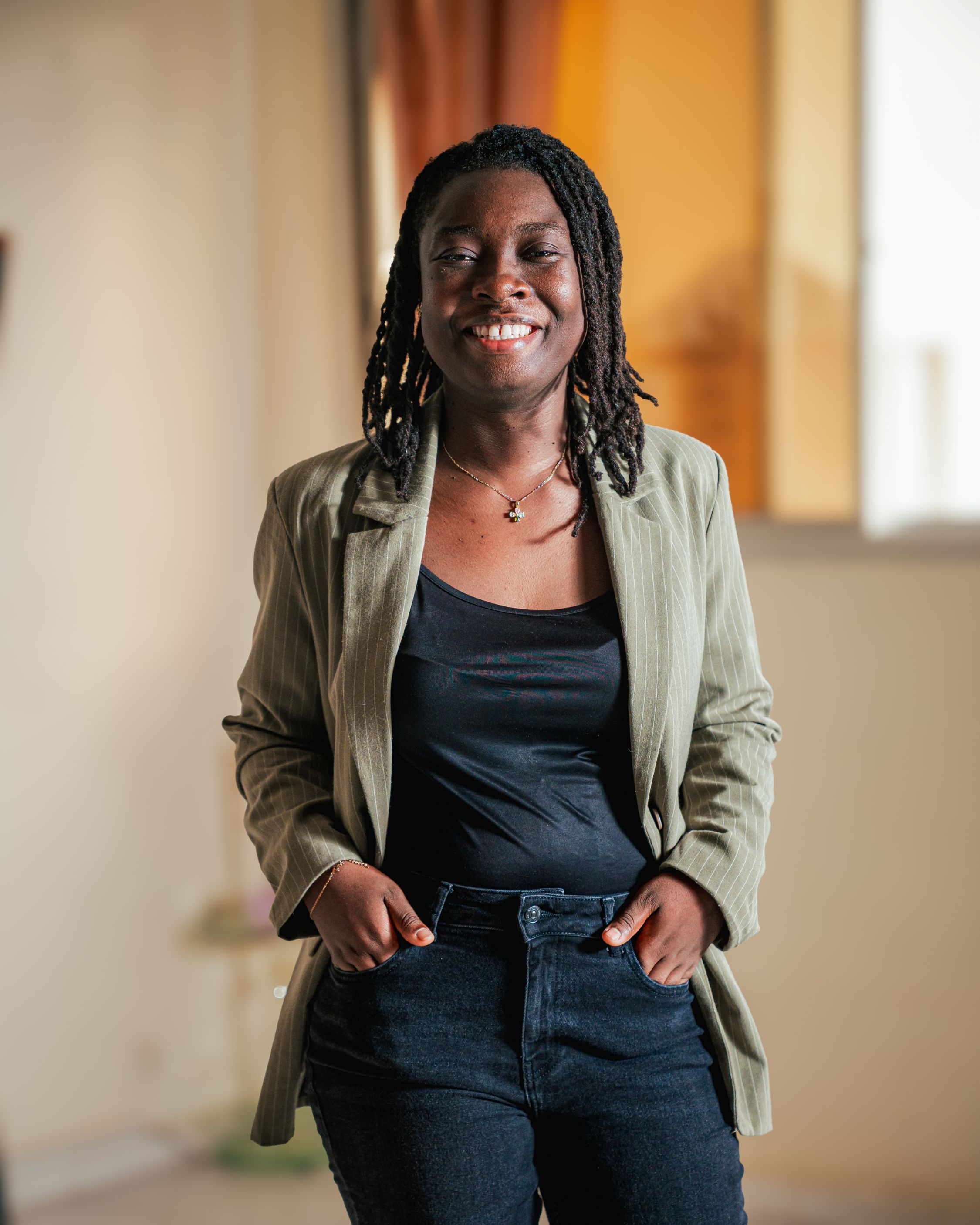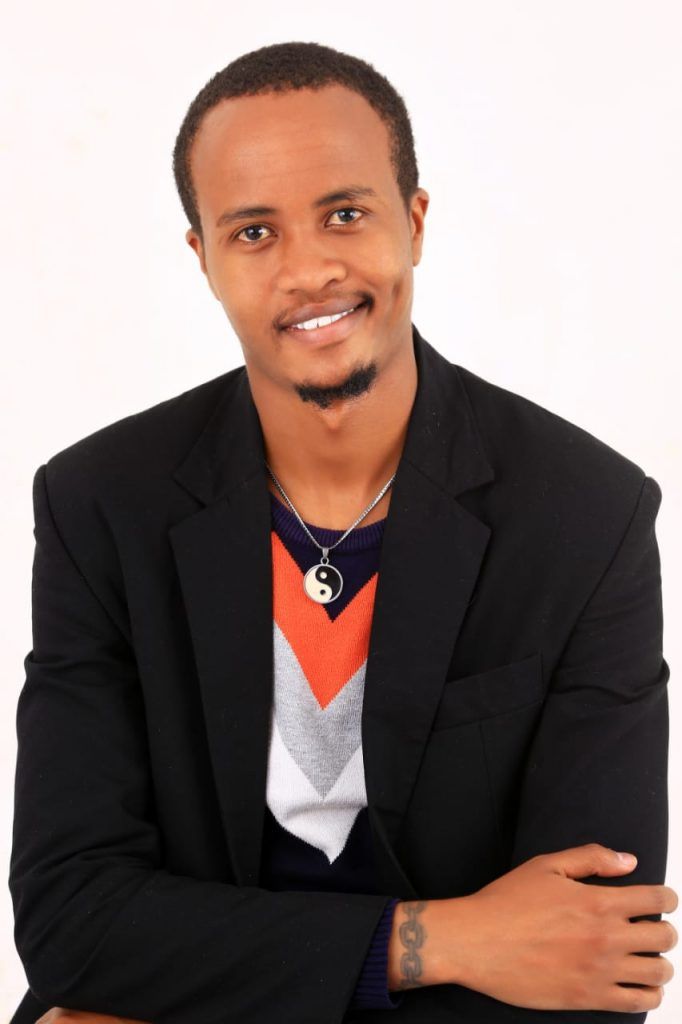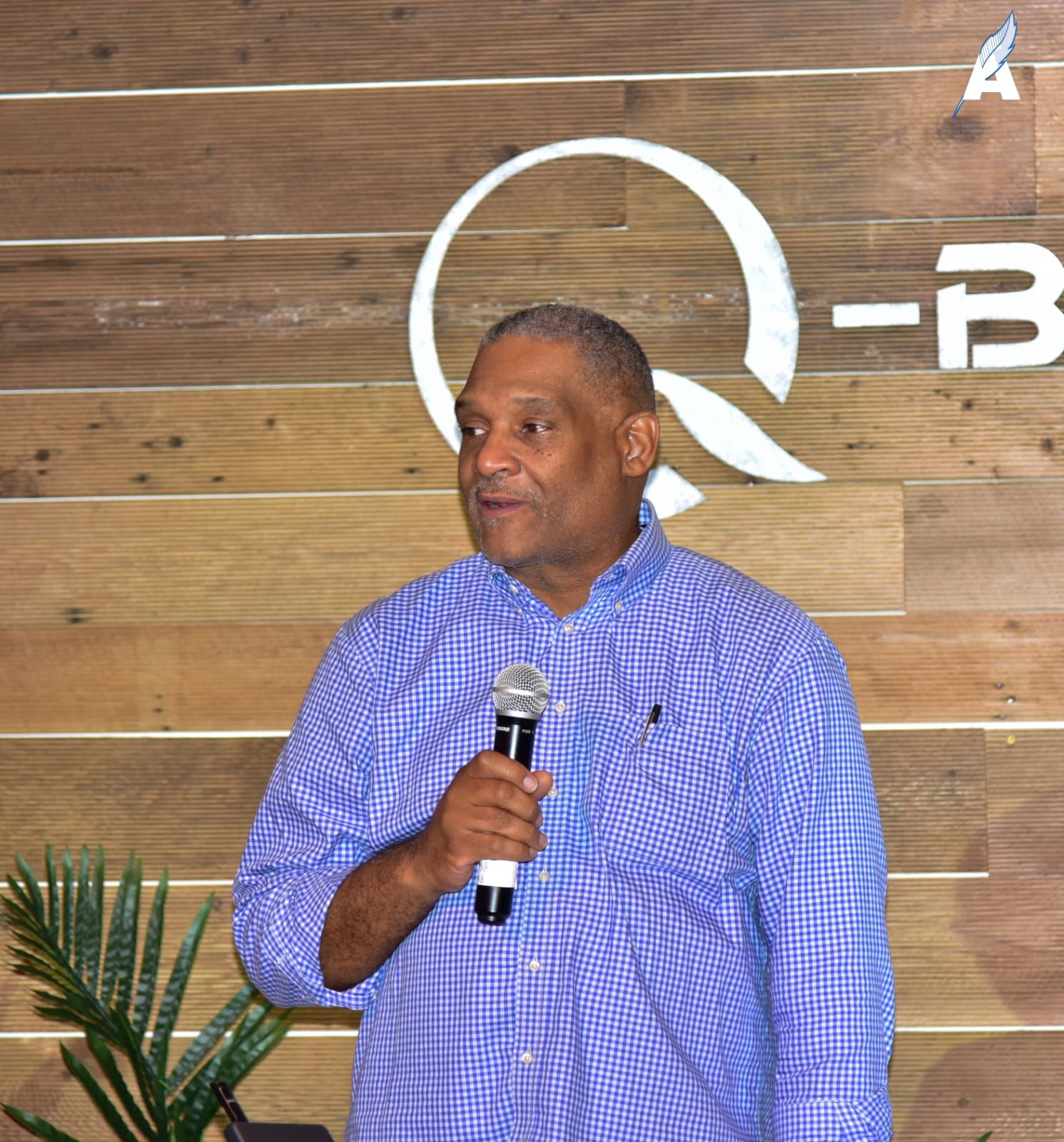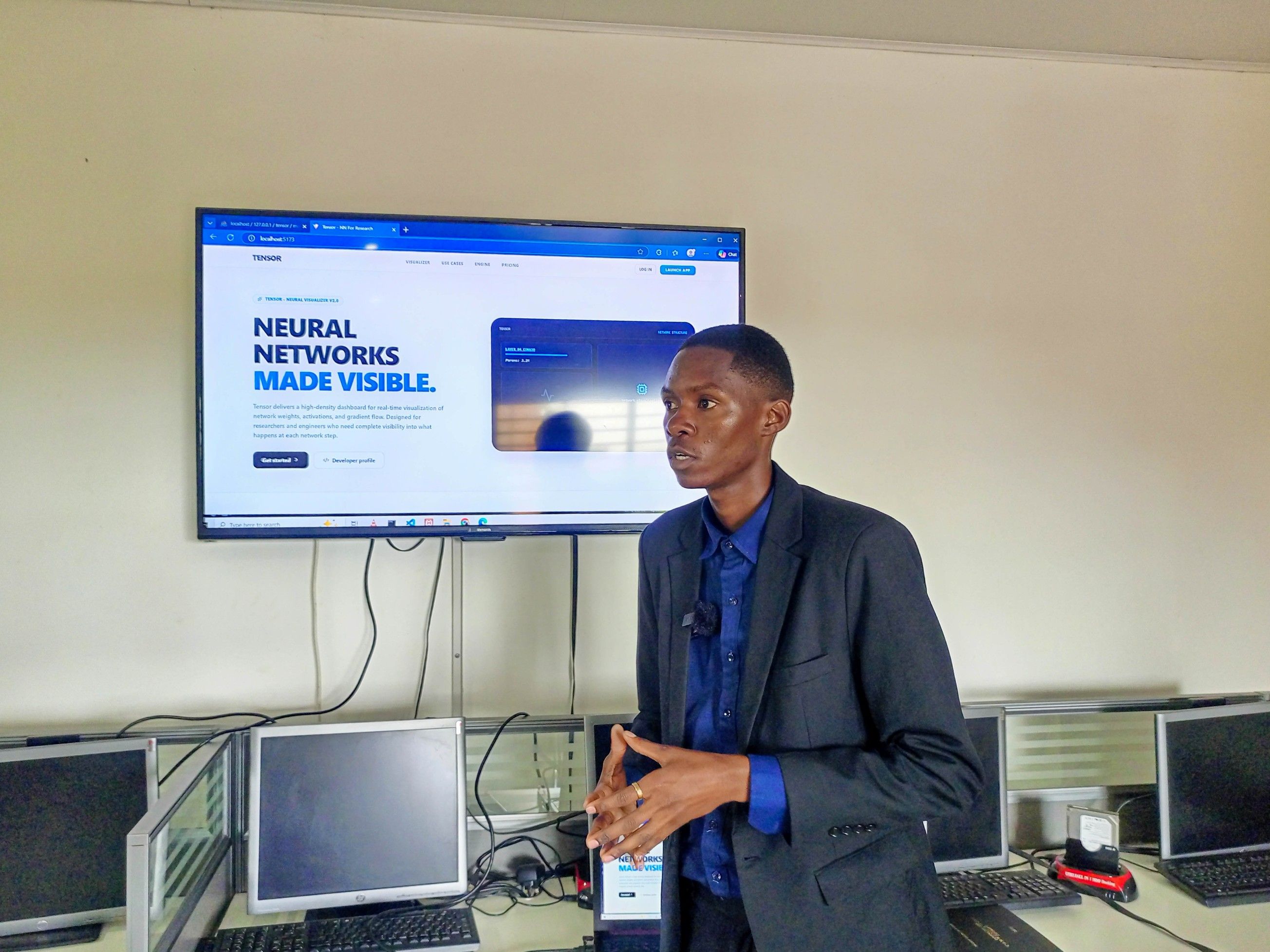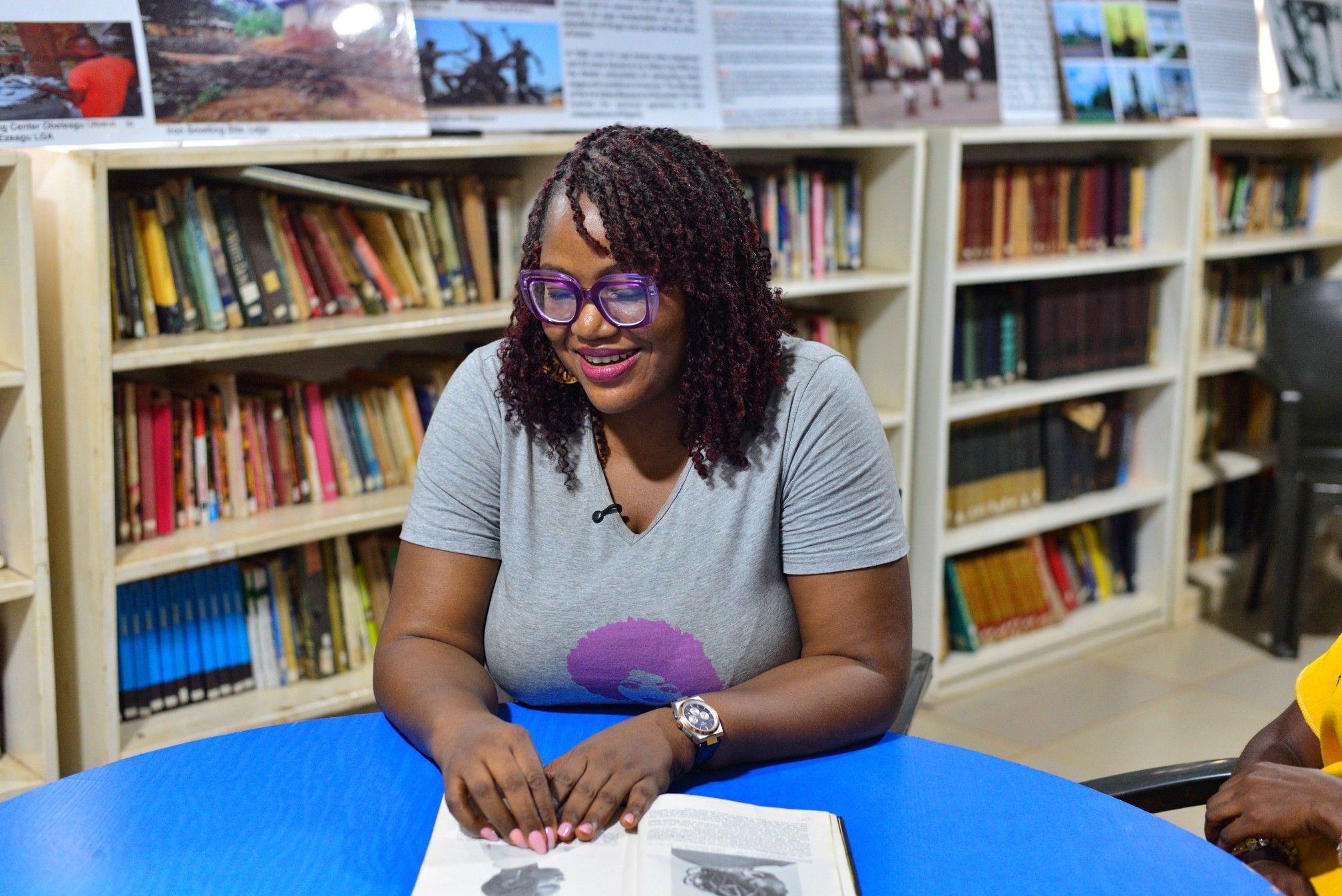What would you do if your father, your all-time hero and apple of your eye, called you while sad and broken?
It’s a situation Wazi Christelle found herself in in 2017.
She was then a student at the African Leadership University in Mauritius.

“Hello, Daddy. How are you doing? And how did it go?” She received the phone call.
Her father, a consummate auditor, had been in a meeting, making a presentation. The stakes were high; this was an opportunity he’d looked forward to.
Wazi Christelle, a daddy’s girl who’d grown up trying different recipes with her dad in their kitchen in Côte d'Ivoire, had seen the elation in her father when he had been preparing for this opportunity.
She was proud of him. She was happy for him. She silently prayed that God would help him excel. Filial love soared in her heart. This was a man she picked inspiration from, adoring a character he modelled so well; the desire to do more and be more.
But now, as she pressed the phone to her ear, she noticed the unusual timbre of her father’s voice. He sounded pained.
“It didn’t go well, Ma plus belle,” her father had responded.
Ma plus belle, a French phrase meaning ‘my most beautiful’. Wazi Christelle’s father used it when talking to his daughter. A proud father doting on his daughter.
Something in her broke.
“What happened?”
“I was well prepared, you know that. Everything in the first stages went well. In the last presentation, however, the program required me to speak in English.”
Wazi’s father, a Francophone African, wasn’t fluent in English.
“I panicked. My confidence walked out on me.”
Wazi’s father knew what he ought to have said during that final presentation, but when he opened his mouth to speak, he couldn’t stitch together a complete sentence in English. He lost the opportunity.
Wazi Christelle felt her father’s heartbreak. Her father couldn’t get opportunities he was well qualified for, just because, what, English?
“I’ve got to do something about this,” she mulled.
***
Wazi Christelle was born in 1997 in Abidjan, a city in Côte d'Ivoire. She grew up in a close relationship with her father, with whom she played and cooked.
“I never liked school,” Wazi told me during an interview in October 2025 via Zoom. “I loved to learn, but school, the institution, I hated that.”
A tiny child who disliked going to school, she had a trick up her sleeve. Her parents would drop her off at school every morning on weekdays, but as soon as they bade her goodbye and turned, she also turned and followed them.
“I was so tiny, and so it took my parents a while to realise I was right behind them. It was funny because whenever they instinctively turned, I also turned. They couldn’t see me because I’d be right at their feet while their line of sight was trained above me and ahead. They’d only spot me when they were about to get into the car. That’s a story they’ve always told.”
I asked Wazi about other childhood memories she remembers.
Mum, is that you?
“I have one from my primary school times. I was in my final year of primary school when one day, my mother decided to come pick us up from school. She got my baby sister, who was a class lower than me, and then walked into my class, holding my sister’s hand.”
“What happened?” I probed for more.
Wazi laughed and then went on to tell a story she narrates with fond memories.
“The thing was, in the morning when we left home for school, mum had long hair. But the woman who walked in holding my sister’s hand was a stranger with short hair.”
I took the liberty of reimagining the scene, based on the story Wazi narrated to me. It goes as follows.
***
Wazi sees a stranger walk into her class holding her baby sister close. She goes all guns out and causes a scene.
“Hey, you! Who are you and why are you holding my sister’s hand?” she demands.
The whole class falls silent, the attention shifting to Wazi’s outburst. Eyes dart from Wazi to the woman holding a young pupil’s hand.
“Who do you think you are?” She breathes fire, fearing a stranger has her sister captive or something like that.
However, upon a closer inspection of the stranger’s facial bone structure, Wazi’s eyes light up with flashes of recognition.
Why does this woman look like me?
The science of genetic information inheritance is in play in their family, carving out Wazi’s fragile baby face with the echoes of her mother.
In a low voice devoid of the initial venom, Wazi asks, “Mum, is that you?”
The class bursts into giggles, Wazi’s mother joining in.
***
In Nairobi, my head tipped backwards as her narration forced a chuckle out of me. Wazi was connecting with me from Dakar. On my laptop screen, I could see her face brighten up as she told the story.
“What was your mother’s response?” I asked her.
“She told me she was so proud of me for defending my baby sister, and she now knew without a doubt that I would always have my sister’s back. But then she warned me against talking to adults in the manner I had talked to her.”
When I want something, I make sure I get it
When Wazi later joined high school, the family had relocated from Côte d'Ivoire to Senegal.
The girl who hated school but loved learning was always a top performer, clinching the top three spot whenever they sat for examinations.
She had also fallen in love with Senegal because “unlike Côte d'Ivoire, where to me it had seemed like everyone was Ivorian, in Senegal I met people with different accents and colours. In school, we had a blend of cultures, with students from other parts of Africa, Europe, America and Asia”.
“In high school, I participated in athletics under relays and other runs, and also picked a hobby playing softball,” Wazi told me. She also discovered she had a sympathetic ear, for her listening skills prompted many students to confide in her.
After her high school, Wazi’s excellent performance made her father proud. He decided he wanted his daughter to pursue higher education at a London-based institution.
“I never had an idea of what I wanted to pursue,” Wazi recalled. “All I knew was I wanted an institution with a majority of Africans, and one whose teaching approach was practical-based. Remember, I loved learning, not the idea of school.”

“But your father wanted you in London. That wouldn’t give you the preference of an institution with a majority of Africans. How did that go?” I wanted to know.
“Halfway with the application to a London-based school whose name I don’t recall, I started another application for a scholarship at ALU, the African Leadership University in Mauritius. When I was accepted into ALU for a course in Business Management, I shared the news with my mum. Later, when my father got the news, he wasn’t happy. He still insisted that I go to London.”
Wazi, however, negotiated with her father. “How about I go to ALU, and if we don’t like it, I will drop out and go to London?”
Her father nodded to this proposal, but he had a condition. He didn’t want his daughter to sign the scholarship contract, for that would bind her for the next four years at ALU.
“But when I got to ALU, I was already eighteen and legally of age. It meant I could sign the contract myself. I signed it. Dad only found out later, but this time he had to give in to what I wanted. I’m one person who, when I want something, I make sure I get it.”
Anyone want to join me for a meal?
In Mauritius, Wazi enjoyed Mauritian food. However, some of her friends from other countries didn’t.
Wazi remembered fond days behind her when, back home in Senegal, she would cook and invite friends over to savour her culinary skills.
She saw an opportunity to do that again, this time in Mauritius. It was out of a passion and a desire to help her friends have meals they’d enjoy.
She cooked in her residence and then invited not just friends, but anyone in the school who wanted to enjoy a different meal.
That’s Wazi, a giver. Kindness is a language she’s fluent in, and she loves speaking it.
Different people later reached out to her after devouring her finger-licking meals, requesting her to cook again because they loved it. For the first time, an entrepreneurial idea struck Wazi.
“I can cook and sell, earn something. There’s demand,” she thought.
In the days that followed, she prepared meals during her free time and sold them to her fellow students. After some time, however, she saw that selling food was common. She decided to pivot to preparing snacks. Her focus was on Chin Chin, a sweet fried dough snack. With this new idea, she captured the whole market of students and teachers.
The call from her dad, and the new realisation
It was in 2017 that Wazi Christelle received a call from her father, saying he had lost an opportunity during a presentation because he couldn’t speak English fluently.
That day, Wazi’s thoughts troubled her.
She tucked a thought away in a crevice of her mind, “One day I will do something about it.”
In the following year, 2018, something else happened that mounted the pressure on her to act. “I received many internship opportunities in 2018, but then the same couldn’t be said for many other students from Francophone Africa,” she told me. “When I scrutinised the situation, I realised the reason many companies and organisations preferred me was that I could speak English better and faster than the rest.”
Wazi conceived a concept for a company that helps Francophone Africans improve their English-speaking skills. The problem was clear, and so was its solution, forming in her brain together day by day as her creative cylinders fired.
Wazi graduated in 2019 and got a job as a credit analyst at a firm in Côte d'Ivoire. The firm was international and had just opened a branch in Côte d'Ivoire. Once again, she was put in charge of the English-speaking region, and as she explained, “because I could speak English better than my peers.”
She would, however, leave the job six months later and travel back to Senegal, where she took a job with ALX. ALX, a training centre, wanted to expand into Francophone Africa. They employed Wazi as their Business Developer.
She later joined ALX’s entrepreneurship team. The team was on a mission to support 100,000 young people in building and launching their business ideas across West Africa.
“Here, I learned to design curricula,” Wazi said.
She, however, noticed a familiar pattern spreading its claws to kill opportunities of Francophone Africans: Those who couldn’t speak English as fast as she could were always disadvantaged.

“At ALX, I realised that many young people had great ideas but weren’t accepted into the cohort because their English was poor. I started understanding how deep this issue cut, and the dreams it wrecked.”
“My idea makes sense.”
When her manager at ALX announced that all staff must also work on an individual business project, Wazi took the opportunity to pay attention to her idea for a company that creatively solves the tragedy of opportunities for Francophone Africans dying from stab wounds of poor English-speaking skills.
In October 2022, she was accepted for a two-month virtual mini-MBA program offered by an institution based in Austin, Texas. To complete the program, she had to either work on a case study within a team or individually prepare a pitch presentation for a business project.
“I decided to go solo with my idea for a business that solves the English-speaking nightmare for Francophone Africans. I saw it as a great opportunity to find out, once and for all, whether the idea held any water. When I did my presentation and saw the interest and enthusiasm it stirred in the panel, I got my confirmation. My idea made sense.”
Wazi, however, didn’t continue working on the idea. She flew to Dubai to join a university that had offered her employment as an enrollment advisor for Francophone Africa. I bet you, your guess on why she stood out for this position will be correct.
It seemed like every step she made and every turn she took, the universe accentuated the fact that the problem of dead opportunities for Francophone Africans owing to their poor English-speaking skills was real. And Wazi already had a solution. Clearly, there was a market because even in Dubai, from Wazi’s position, she noted how many Francophone African students never got accepted into programs, due to the same issue. She needed to act.
She returned to Africa, working remotely for the university in Dubai.
Magana, meaning ‘Speak’ in Hausa
In July 2023, she decided to run a pilot of her idea. She worked with a friend to get a name for the company, brainstorming for an African name. They ended up with Magana, which means ‘Speak’ in Hausa. It was important that they get an African name because, according to Wazi’s vision, “Magana’s end game isn’t to only focus on English but also to promote African languages.”
“I started with the little resources I had,” she told me. “I got an expert to design a simple website, used Google Slides to create class content, Slack’s free version for communication, and Zoom for virtual classes.”
Wazi’s history at ALX came in handy as it had endowed her with skills in curriculum development.
She made the first class for her first cohort free, because she wanted to test whether the content worked. Over 100 people applied, but she only took 25 in.
The first cohort loved the sessions and recommended Magana. Many other people expressed their interest, and this pushed Wazi into deciding to fully focus on Magana. She ended her contract with the Dubai university to focus on Magana from January 2024, working with other facilitators.
“At Magana, we’ve also created a community that connects our students with individuals who are good at speaking English. The more they engage in conversations, the more they improve their speaking and boost their confidence.”
I asked her whether she enrolled her father in the program.
She explained, “No. But I made deliberate efforts to speak English with him. There were also times I invited my friends home and told them to speak English with my dad. He never knew, though, that this was what I was doing. I figured that the more he spoke English, the more confident he grew.”
***
Wazi applied for the Mandela Washington Fellowship for Young African Leaders for the first time in 2024. She was accepted into the 2025 cohort in the business and entrepreneurship track at the University of Texas at Austin.

In her own words, “The Mandela Washington Fellowship came to reignite my fire for Magana. One of the major takeaways was that as Africans, we have what it takes. Africa has boundless potential. The problem is that our stories are told by others, giving the rest of the world assumptions that we are poor and unable. Unfortunately, these assumptions creep into our thinking, too, and we start believing that to make it, we have to travel abroad. And that everything in the Western countries is great. While I witnessed a great and beautiful America, it’s because they worked to build it. We, too, have all that it takes to make the pasture greener on our end. We need to start small and fail fast, because failing fast helps us learn from our failures, improve and progress.”
Wazi Christelle currently works in the international public sector. She hasn’t abandoned entrepreneurship, though. She rejoined the employment world to learn and grow more in a space that complements Magana and prepares her to take her company to the next level.
You can connect with her via LinkedIn here.
***
This story is part of a series Lesalon Kasaine is writing, of the stories of select 2025 Mandela Washington Fellows. Read more about the Mandela Washington Fellowship for Young African Leaders, a program run by the US Department of State. Lesalon was himself an MWF 2025 Fellow.

